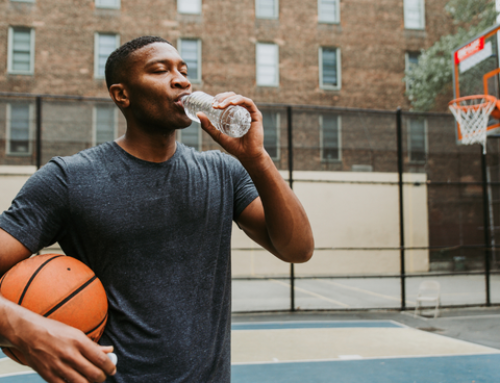Coconut Water Vs. Sports Drinks
Athletes benefit tremendously from a healthy dose of potassium in their diets, because potassium eases muscle cramps and helps balance high levels of sodium. However, athletes must determine the most effective drink to replace potassium stores and balance sodium levels lost through sweat during physical activity. Both coconut water and popular sports drinks replace potassium levels; however, a recent study determined the efficacy of each drink in relation to its ability to replenish sodium levels as well.
The study—presented for the American Chemical Society—found that one liter of coconut water contains up to 1,500 mg of potassium, compared to 300 mg in equal volumes of Gatorade or Powerade. A team of researchers at Indiana University Southeast, led by Chhandashri Bhattacharya, Ph. D., analyzed and compared the nutritional content of coconut water to that of popular sports drinks. The researchers determined that coconut water is not only loaded with potassium, but also rich in other antioxidants. Although the levels of carbohydrates and magnesium were approximately equal in all beverages, the researchers noted that the sodium content of sports drinks exceeded that of coconut water by 200 mg per liter.
According to Bhattacharya, most Americans have a sodium-rich diet with low levels of potassium, a diet imbalance that places them at a greater risk for developing life-threating conditions such as cardiovascular disease. A healthy body requires a balance of sodium and water to function properly. However, athletes and trainers lose a significant amount of sodium when they sweat. These individuals rely on liquid nourishment to restore their bodies’ delicate balance of water and sodium during exercise. Researchers conducting the analysis did not think coconut water is up for the job. Although coconut water does replenish essential nutrients that the body loses during physical activity, the study determined it was not enough to correct the sodium imbalance athletes experience during strenuous activity.
Individuals who perform light exercise would likely benefit from coconut water; however, those who require immediate refueling during and after workouts and competitions should rely on popular energy drinks to replenish diminished nutrient levels.
Picture: HindustanTimes
RECOMMENDED FOR YOU
MOST POPULAR
Coconut Water Vs. Sports Drinks
Athletes benefit tremendously from a healthy dose of potassium in their diets, because potassium eases muscle cramps and helps balance high levels of sodium. However, athletes must determine the most effective drink to replace potassium stores and balance sodium levels lost through sweat during physical activity. Both coconut water and popular sports drinks replace potassium levels; however, a recent study determined the efficacy of each drink in relation to its ability to replenish sodium levels as well.
The study—presented for the American Chemical Society—found that one liter of coconut water contains up to 1,500 mg of potassium, compared to 300 mg in equal volumes of Gatorade or Powerade. A team of researchers at Indiana University Southeast, led by Chhandashri Bhattacharya, Ph. D., analyzed and compared the nutritional content of coconut water to that of popular sports drinks. The researchers determined that coconut water is not only loaded with potassium, but also rich in other antioxidants. Although the levels of carbohydrates and magnesium were approximately equal in all beverages, the researchers noted that the sodium content of sports drinks exceeded that of coconut water by 200 mg per liter.
According to Bhattacharya, most Americans have a sodium-rich diet with low levels of potassium, a diet imbalance that places them at a greater risk for developing life-threating conditions such as cardiovascular disease. A healthy body requires a balance of sodium and water to function properly. However, athletes and trainers lose a significant amount of sodium when they sweat. These individuals rely on liquid nourishment to restore their bodies’ delicate balance of water and sodium during exercise. Researchers conducting the analysis did not think coconut water is up for the job. Although coconut water does replenish essential nutrients that the body loses during physical activity, the study determined it was not enough to correct the sodium imbalance athletes experience during strenuous activity.
Individuals who perform light exercise would likely benefit from coconut water; however, those who require immediate refueling during and after workouts and competitions should rely on popular energy drinks to replenish diminished nutrient levels.
Picture: HindustanTimes












